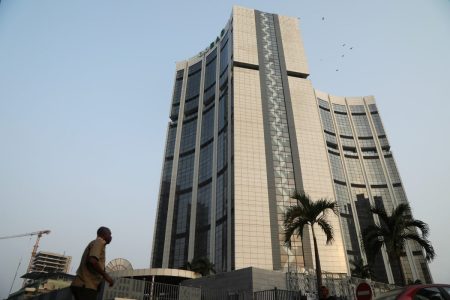
Ike Amos
Dublin, Ireland — The Central Bank of Nigeria (CBN) has reported that earnings from Petroleum Profit Tax (PPT) and royalties dipped by 35.53 per cent to N216.25 billion in May 2023, compared with N335.42 billion recorded in the previous month.
The CBN in its Monthly Economic Report for May 2023, also disclosed that earnings from PPT and royalties in the month under review was 44.6 per cent lower than the N390.28 billion earned from the same income item in May 2022.
The banking sector regulator further stated that the country did not record any income from crude oil and gas exports and domestic crude oil and gas sales, despite the fact that domestic crude oil production and export rose to 1.18 million barrels per day (mbpd) and 0.73 mbpd, respectively, “mainly due to the lifting of a force majeure by Exxon Mobil, following the suspension of industrial action by the workers’ union.”
However, the country recorded N6.5 billion from ‘other oil and gas revenue’, dropping by 50.83 per cent and 30.63 per cent compared with N13.22 billion and N9.37 billion recorded in April 2023 and May 2022 respectively.
As a result, the bank noted that Nigeria’s gross oil earnings stood at N222.75 billion in the month under review, depreciating by 36.11 per cent and 52.23 per cent compared with N348.64 billion and 466.34 billion respectively.
Furthermore, the CBN reported that in May 2023, oil earnings accounted for 26.61 per cent of total federation revenue, which stood at N837.10 billion.
In comparison, the bank noted that in the previous month, total federation revenue stood at N997.91 billion, with oil and gas earnings accounting for 34.94 per cent of total revenue, while in May 2022, federation earnings stood at N981.66 billion, with oil accounting for 47.51 per cent of total revenue.
Irrespective of poor performance of the oil and gas sector in the month under review, the CBN remained optimistic that recent developments in the sector, both in the local and international market, would impact positively on the Nigerian economy.
It said: “Nigeria’s economic growth outlook remains positive in the near-term subject to some downside risks. The optimistic outlook is based on expected favourable crude oil prices and higher production. Also, with the removal of the Premium Motor Spirit (PMS) subsidy, it is expected that the wider fiscal space will provide additional impetus for growth.
“Nigeria’s external sector is expected to remain resilient. The positive outlook is underpinned by the expected improvement in macroeconomic conditions over the short to medium term. In addition, government efforts to tackle domestic crude oil production challenges are expected to yield positive results. However, weak global demand could dampen the performance of the external sector.”



